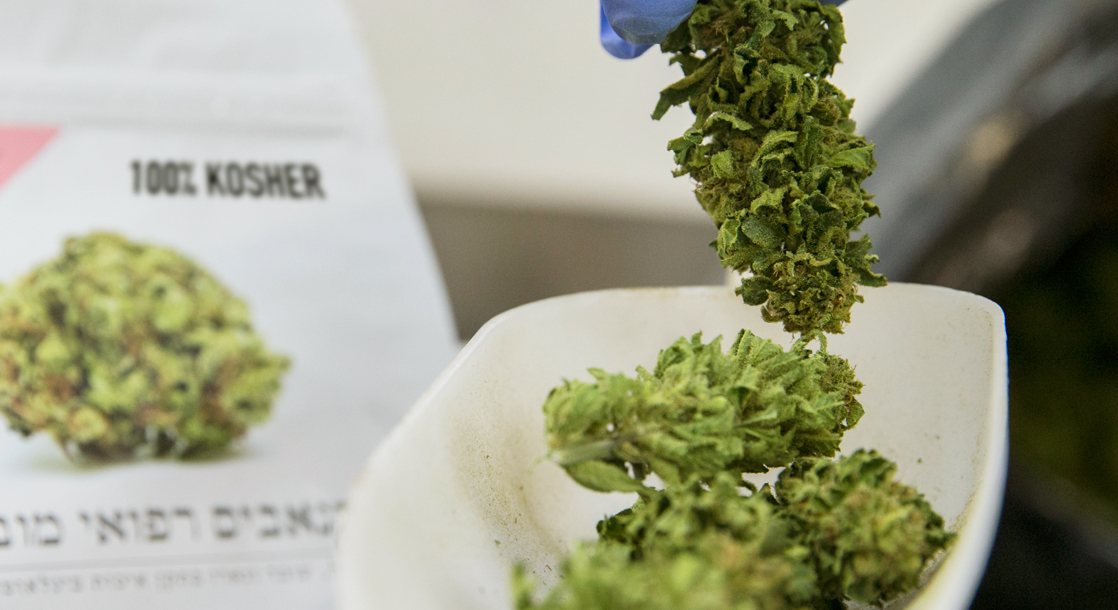Vireo, a subsidiary of the larger Vireo Health company, recently opened up about its process of becoming one of the first companies nationwide to sell kosher medical cannabis products.
Vireo is one of five companies that has obtained the required license to sell medical cannabis products in New York state. In January, the company received its first kosher certification from The Orthodox Union, one of the country’s most recognizable Jewish groups.
“Judaism prioritizes health and encourages the use of medicine designed to improve one’s health or reduce pain,” said Rabbi Menachem Genack, the CEO of Orthodox Union Kosher, at the time of the Union’s first approval of Vireo. “Using medical cannabis products recommended by a physician should not be regarded as a chet, a sinful act, but rather as a mitzvah, an imperative, a commandment.”
The Union has since further explained what exactly is entailed within its certification process. The rules of keeping kosher—ensuring that the plant is kept away from forbidden foods such as insects or pigs and the equipment used to process the cannabis, among other things—do not apply to medical cannabis used for smoking. However, the medical cannabis used for medical edibles is another matter.
Following a rigorous inspection, Vireo received the coveted “OU” stamp on their products. It then had to submit to intermittent inspections from OU rabbis.
“We literally took them through every square inch of the place,” said David Ellis, executive vice president of operations at Cresco Labs, an Illinois-based company also looking to obtain the OU’s seal of approval.
Ultimately, the rise of kosher cannabis—and its greater acceptance in the cannabis community—could be as much about commercialism than about observance of religious piety. With the cannabis business sphere expanding at an unprecedented rate and the industry set to rake in billions this year, developers of kosher cannabis companies recognize that they are sitting on a niche market.
“You’re seeing companies looking for creative ways to distinguish themselves, but also just interesting ways to appeal to different types of consumers,” said National Cannabis Industry Association’s deputy director, Taylor West.











